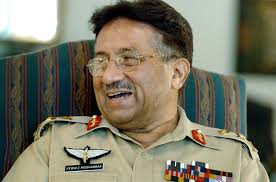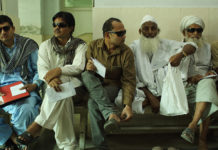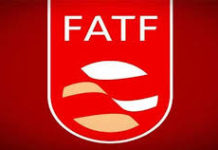By Muhammad Luqman
A special court hearing the high treason case against former military ruler, General Pervez Musharraf has handed him a death sentence.
A three-member bench of the special court headed by Peshawar High Court Chief Justice Seth Waqar Ahmad announced the decision.
The court, in its short order said that it had analysed complaints, records, arguments and facts in the case for three months. The court added it had found Musharraf guilty of high treason according to Article 6 of the Constitution of Pakistan.
It was a majority verdict, with three of the two judges giving the decision against Musharraf.
Musharraf, who is currently receiving medical treatment in Dubai, came to power through a military coup in 1999. His initial actions received legal cover by the judiciary and subsequently the parliament. It was his imposition of the state of emergency in 2007 that led to the charges against him.
Pervez Musharraf is the first military ruler of Pakistan, who was tried under article 6 of Pakistan’s constitution and handed capital punishment. Pakistan has been ruled by four military dictators during its 72 year history. General Ayub Khan, General Yahya Khan and General Ziaul Haque were never tried and punished for high treason.
Earlier, the special court hearing the high treason case against the former president had said it would announce the verdict on December 17 even if arguments of both sides were not completed by then.
It is pertinent to mention here the special court on November 19 had said the verdict in the case would be announced on November 28, before the Islamabad High Court (IHC) barred it from doing so.
The Pakistan Muslim League-Nawaz (PML-N) government had filed the treason case against Musharraf over the president’s imposition of extra-constitutional emergency in November 2007.
Earlier this year, head of the prosecution, Mohammad Akram Sheikh, tendered his resignation. In his resignation letter sent to the interior secretary, Sheikh expressed his inability to proceed with the case after the imminent change of government at the centre.
Sheikh was appointed as the head of the prosecution in the case in November 2013, by the then-PML-N led government.
The former army chief was indicted in the case in March 2014 after he appeared before the court and rejected all charges.
On March 18, 2016, the former president left Pakistan for Dubai for medical treatment after his name was removed from the exit control list on the orders of the Supreme Court.
A few months later, the special court had declared him a proclaimed offender and ordered the confiscation of his property owing to his continuous inability to appear.
Later, his passport and identity card were also cancelled on orders of the apex court.
The major opposition parties in the country hailed the decision as a bulwark against future military coups. Pakistan has spent more than half of its existence under direct military rule.
Bilawal Bhutto Zardari, leader of opposition Pakistan People’s Party, and son of Pakistan’s slain former prime minister Benazir Bhutto, wrote on his Twitter account: “Democracy is the best revenge.”
In a formal statement, Pakistan Army said the decision “has been received with lot of pain and anguish” by the rank and file of the armed forces. It said Musharraf, who had “served the country for over 40 years, fought wars for the defense of the country, can surely never be a traitor.”
The statement also criticized the way the case was handled, saying due process “seems to have been ignored,” and that the armed forces “expect that justice will be dispensed in line with Constitution of Islamic Republic of Pakistan.”
Amnesty International has said that it was crucial that former president Pervez Musharraf receives “a fair trial without recourse to the death penalty”.
In a statement issued on the NGO’s website, its deputy director for South Asia, Omar Waraich, said: “General Pervez Musharraf and the government he led must be held to account for all human rights violations committed during their time in office, not just a select few.
Waraich lauded Pakistan’s move to “break with a history of impunity for powerful generals”.
“At the same time, it is crucial that he receives a fair trial without recourse to the death penalty. The death penalty is the ultimate cruel, inhuman and degrading punishment; it metes out vengeance, not justice,” he added.















